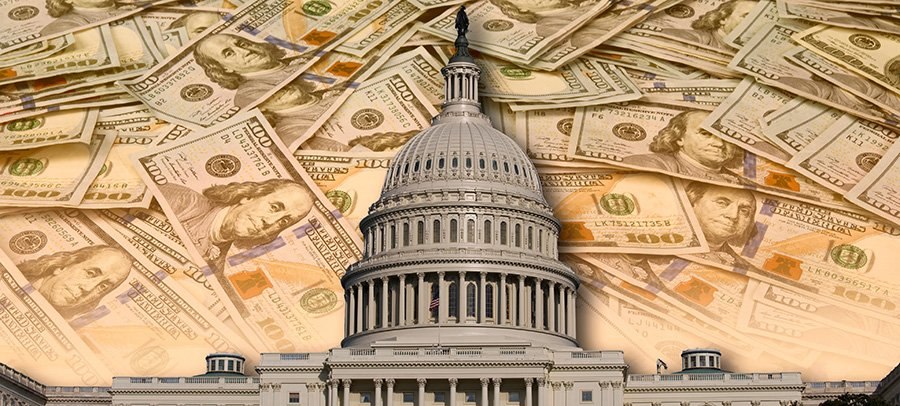Congress will need to raise the debt ceiling by June if it is going to prevent the U.S. government from defaulting on its financial commitments — but Democrats and Republicans in the latest Economist/YouGov poll are split on whether it should.
Democrats support raising the debt ceiling by 60% to 16%, while Republicans oppose raising it by 55% to 20%. Democrats and Republicans are similarly likely to be paying "a lot" or "a little" attention to the debt ceiling debate, with 75% of Democrats who are paying attention saying that Congress should increase the federal borrowing limit. One in five Republicans (20%) who are following the topic agree.
With Congress having several months to reach a deal on the debt ceiling, the question of what will happen if no agreement is reached is also a contentious one. If a deal cannot be reached, Americans oppose a government shutdown by a margin of 47% to 32%. But just one-third of Republicans (34%) oppose shutting down the government over the debt ceiling, and half (50%) are supportive. Independents oppose it by a margin of 41% to 31%, and two-thirds of Democrats (67%) are against a shutdown.
Whether or not a deal is reached will come down to negotiations between Republicans in Congress, Democrats in Congress, and President Biden. More Americans disapprove than approve of how each of these key negotiators are handling the federal deficit and debt ceiling. When looking at net scores — which are measured by the percentage point difference between the share who approve and the share who disapprove — President Biden (-11), Democrats in Congress (-11), and Republicans in Congress (-13) all receive more negative marks than positive ones when it comes to their handling of federal debt. About one in five Americans in each case are unsure.
— Taylor Orth contributed to this article
See the toplines and crosstabs from the Economist/YouGov poll conducted on January 21 - 24, 2023 among 1,500 U.S. adult citizens.
Methodology: Respondents were selected from YouGov’s opt-in panel using sample matching. A random sample (stratified by gender, age, race, education, geographic region, and voter registration) was selected from the 2019 American Community Survey. The sample was weighted according to gender, age, race, education, 2020 election turnout and presidential vote, baseline party identification, and current voter registration status. Demographic weighting targets come from the 2019 American Community Survey. Baseline party identification is the respondent’s most recent answer given prior to June 1, 2022, and is weighted to the estimated distribution at that time (34% Democratic, 31% Republican). The margin of error for the overall sample is approximately 3%.
Image: Adobe Stock (W.Scott McGill)










